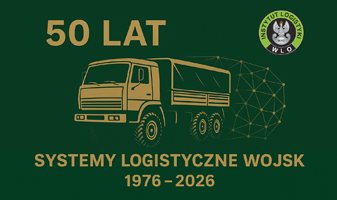ARTYKUŁ ORYGINALNY
Supply Logistics and Social Security in Aging Societies: A Literature Review and Conceptual Model Proposal
1
The Institut of Sociological Sciences, The John Paul II Catholic University of Lublin, Poland
2
Dipartimenti di Scienze umanistiche, Università di Catania, Italy
3
Department of Sociology, Warsaw University of Life Sciences, Poland
Zaznaczeni autorzy mieli równy wkład w przygotowanie tego artykułu
A - Koncepcja i projekt badania; B - Gromadzenie i/lub zestawianie danych; C - Analiza i interpretacja danych; D - Napisanie artykułu; E - Krytyczne zrecenzowanie artykułu; F - Zatwierdzenie ostatecznej wersji artykułu
Data nadesłania: 21-02-2025
Data ostatniej rewizji: 30-06-2025
Data akceptacji: 18-09-2025
Data publikacji: 30-09-2025
Autor do korespondencji
SLW 2025;62(1):175-192
SŁOWA KLUCZOWE
DZIEDZINY
STRESZCZENIE
Abstract: The aging of societies represents one of the most significant challenges of the 21st century, generating a need to adapt to social, healthcare, and logistical infrastructure. Previous analyses of issues related to the social security of older adults have primarily focused on systemic aspects, marginalizing the role of supply logistics as a crucial link in social infrastructure. The research niche of this article is the analysis of the impact of supply logistics on the social security of older adults and the assessment of the potential for integrating logistics with the concept of universal urban planning.
The aim of the study was to determine the importance of supplying logistics for the quality of life of seniors and to analyze the effectiveness of new logistics technologies in the context of a progressively aging population. The article presents the following hypotheses: (H1) Supply logistics positively affects the quality of life of seniors by improving access to basic services; (H2) The integration of logistics with smart city structures reduces the risk of social exclusion among older adults; (H3) The ghettoization of senior services negatively affects the availability of social and healthcare resources; (H4) The phenomenon of double aging increases the demand for specialized logistics services; (H5) The application of two-tier logistics infrastructure is an effective way to address the challenges arising from demographic changes.
The study employed theoretical methods, including a review of the relevant literature, international reports, and legal documents. The analysis was conducted from an interdisciplinary perspective, combining the theory of social security with logistics, the sociology of aging, and social policy.
The findings confirm that well-organized supply logistics significantly improve the quality of life for older adults, particularly in terms of access to healthcare and social services. The integration of logistics with smart city technologies, despite certain digital barriers, positively influences the reduction of social exclusion among seniors. The negative impact of the ghettoization of senior services on their accessibility was also confirmed. The conclusions indicate the necessity of developing integrated logistics models that consider both physical and digital infrastructure, which will enable more effective responses to the needs of aging societies and prevent the marginalization of older adults.
Udostępnij
Przetwarzamy dane osobowe zbierane podczas odwiedzania serwisu. Realizacja funkcji pozyskiwania informacji o użytkownikach i ich zachowaniu odbywa się poprzez dobrowolnie wprowadzone w formularzach informacje oraz zapisywanie w urządzeniach końcowych plików cookies (tzw. ciasteczka). Dane, w tym pliki cookies, wykorzystywane są w celu realizacji usług, zapewnienia wygodnego korzystania ze strony oraz w celu monitorowania ruchu zgodnie z Polityką prywatności. Dane są także zbierane i przetwarzane przez narzędzie Google Analytics (więcej).
Możesz zmienić ustawienia cookies w swojej przeglądarce. Ograniczenie stosowania plików cookies w konfiguracji przeglądarki może wpłynąć na niektóre funkcjonalności dostępne na stronie.
Możesz zmienić ustawienia cookies w swojej przeglądarce. Ograniczenie stosowania plików cookies w konfiguracji przeglądarki może wpłynąć na niektóre funkcjonalności dostępne na stronie.


